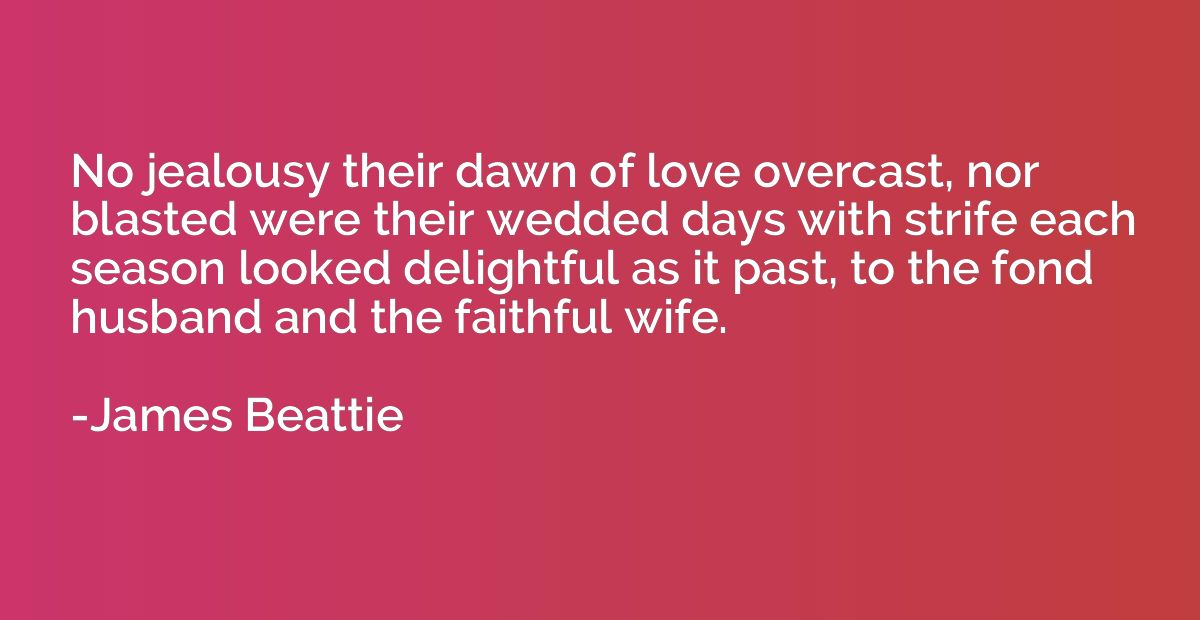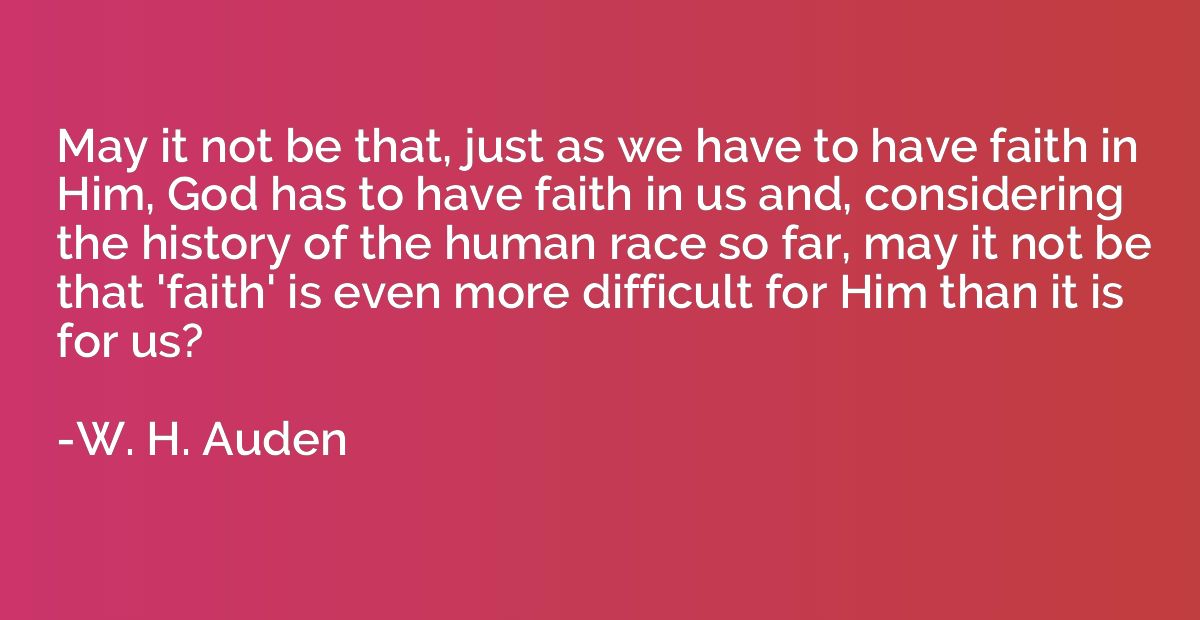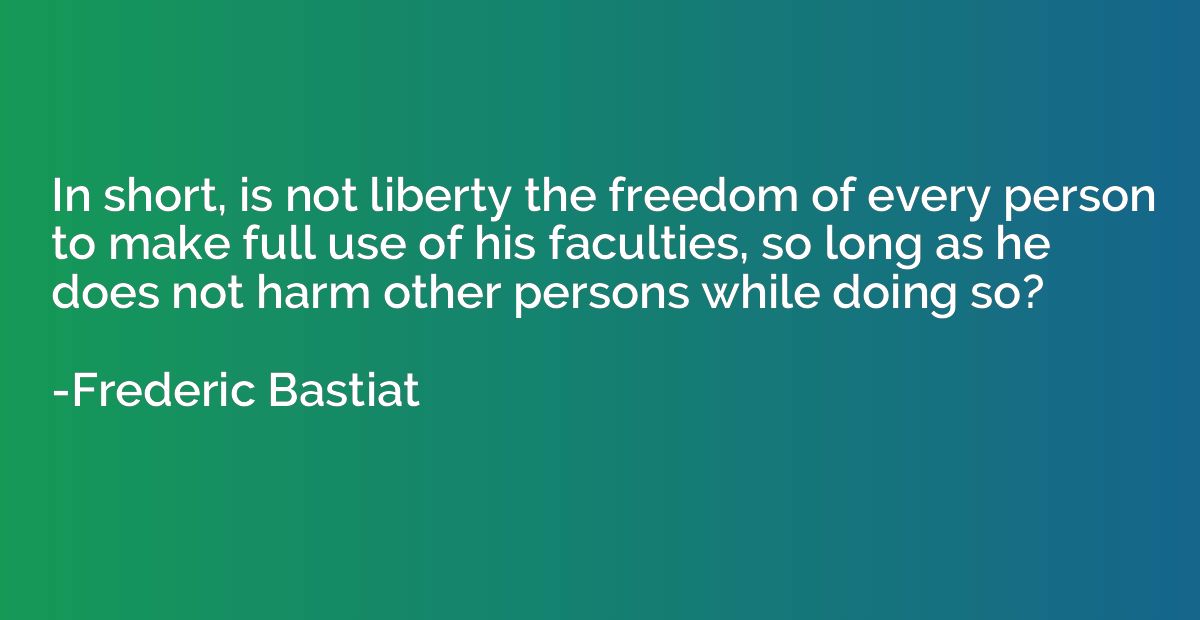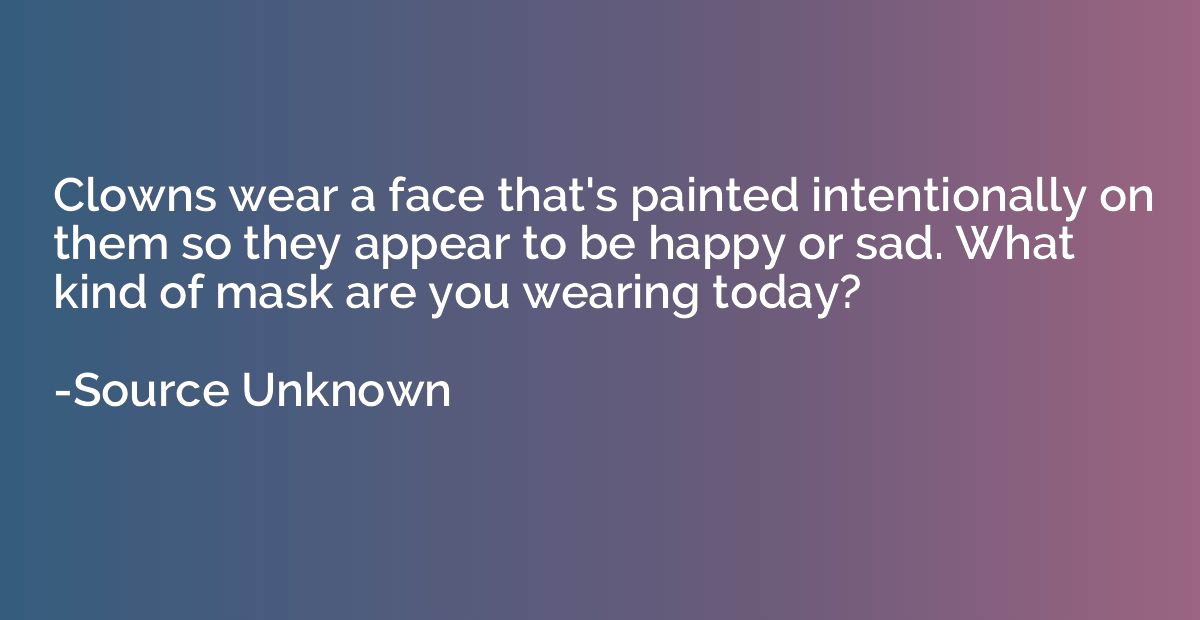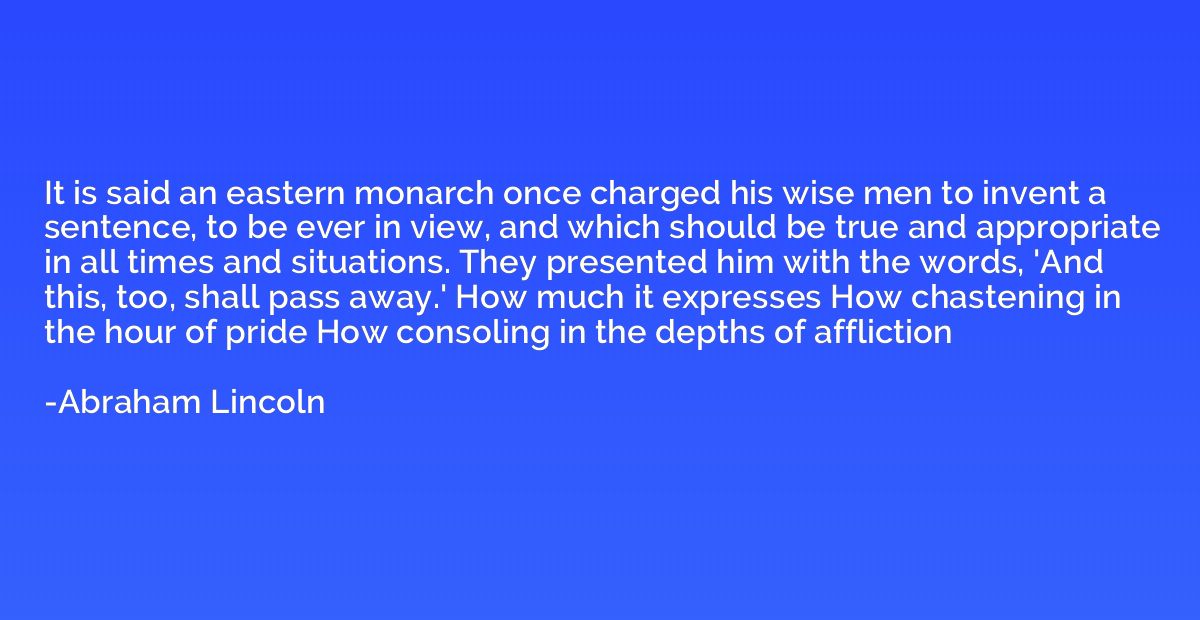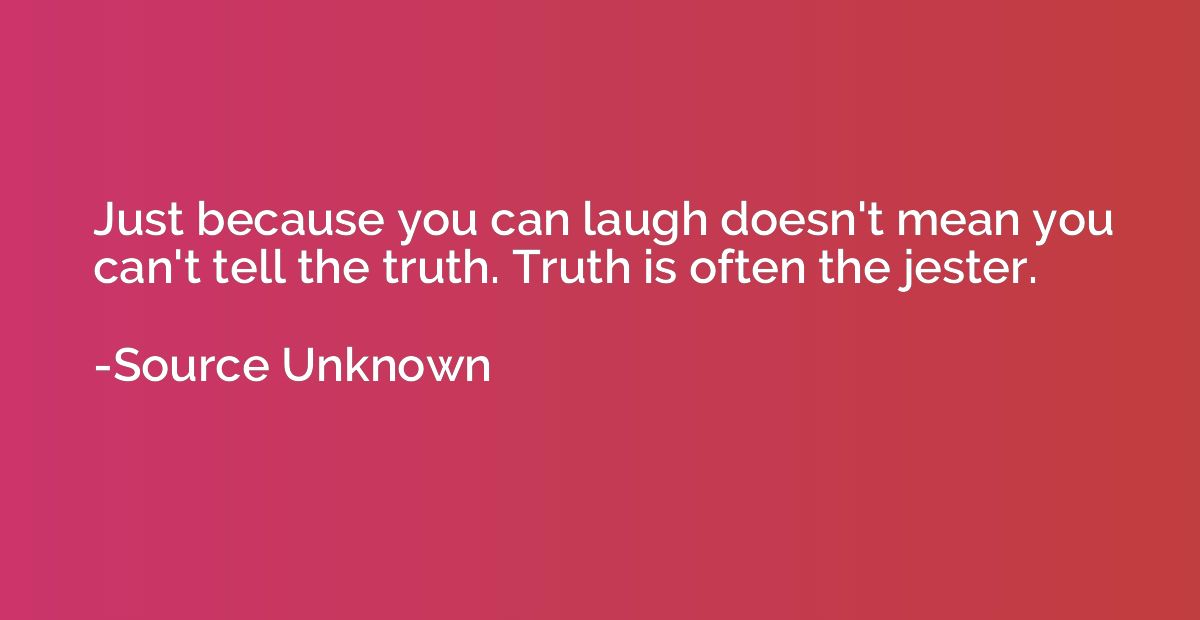Quote by Andre Breton
To speak of God, to think of God, is in every respect to show what one is made of. I have always wagered against God and I regard the little that I have won in this world as simply the outcome of this bet. However paltry may have been the stake (my life) I am conscious of having won to the full. Everything that is doddering, squint-eyed, vile, polluted and grotesque is summoned up for me in that one word: God!
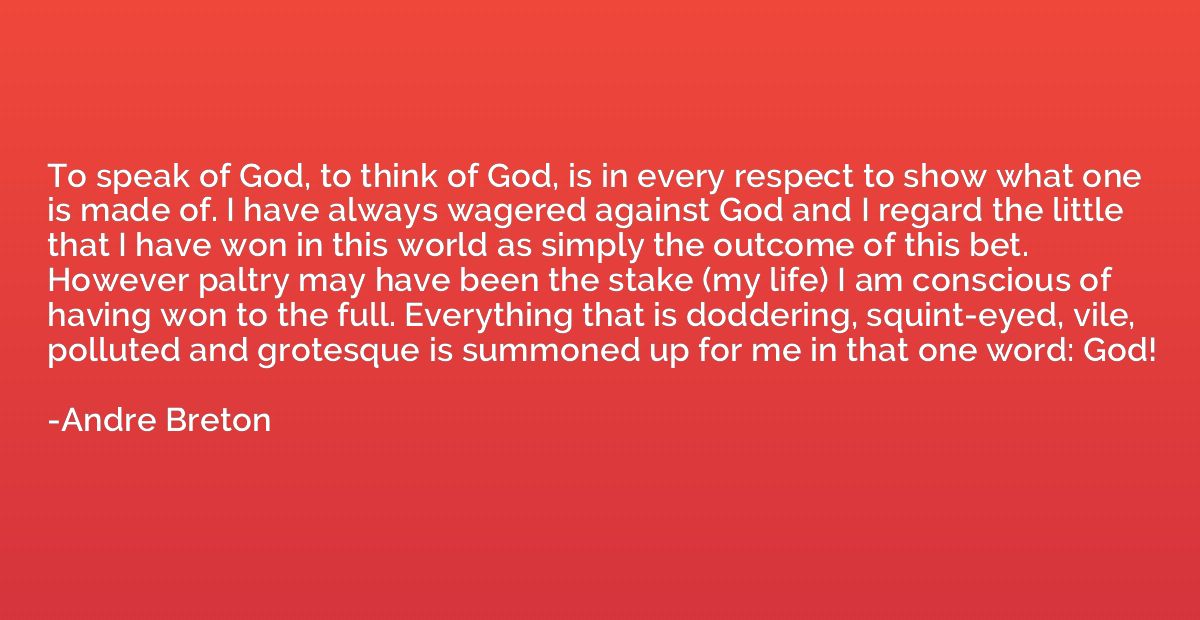
Summary
In this quote, Friedrich Nietzsche reflects on his wager against God, stating that his achievements in life are a result of this opposition. He considers speaking and contemplating about God as a testament to one's character and beliefs. Nietzsche perceives the concept of God to embody all that is debilitated, distorted, impure, and repulsive in the world. He associates his victory with his rejection of God, implying that his accomplishments are a consequence of his defiance against conventional religious notions.
Topics
God
By Andre Breton




